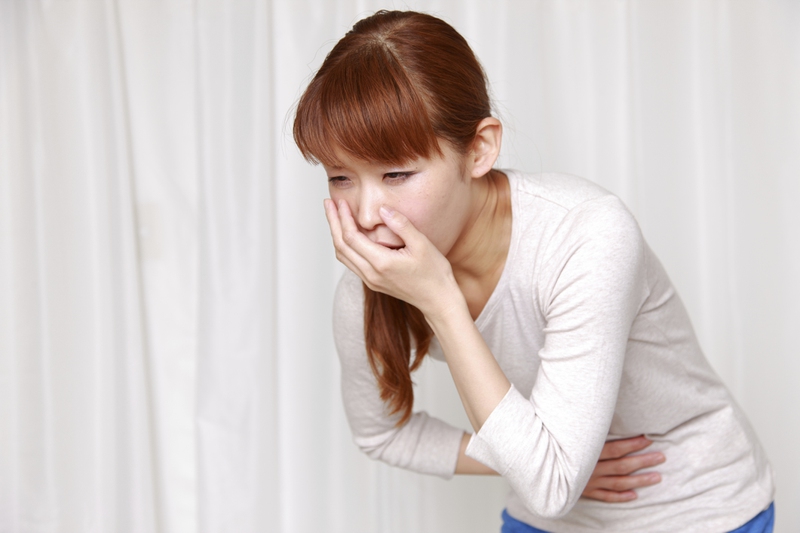Many people know that things are about to get bad when they have that queasy feeling in their stomach after eating. Do you wonder why you have to deal with nausea and stomach pain after eating? While it is possible that your stomach pain after eating is due to overeating, there could be some medical reasons as well. You have to consider other symptoms as well to determine if you have a more serious health disorder. Let's find out more about it.

Causes of Stomach Pain and Nausea After Eating
You Have Indigestion
You experience indigestion when you place too much stress on your digestive system through overeating. Also called dyspepsia, people with indigestion may also experience burping, stomach pain, bloating, and gas.
You Have Irritable Bowel Syndrome (IBS)
IBS is actually a combination of several gastrointestinal symptoms. Some of the most common symptoms associated with IBS are diarrhea, abdominal pain, and constipation. People with IBS also complain about feeling nauseous at times.
You Have Stomach Ulcers
You may experience abdominal pain soon after eating if you have ulcers in the stomach. These ulcers are basically erosions in the soft intestinal lining. If you eat food with high acid content, it can aggravate the ulcers and cause nausea, pain, and vomiting.
You Eat Too Much
Overeating is among the most common causes of nausea and stomach pain after eating. This is actually your body's way to tell you that you should not eat so much, as your stomach cannot handle that much of stress. This may also indicate that your body is becoming dehydrated while trying to digest all the food you have eaten.
You Have Food Intolerance
You may experience stomach pain only after eating particular foods. If that is the case with you, you may have food intolerance. Most people cannot tolerate spicy foods and end up dealing with stomach pain. You may also develop abdominal pain because of food poisoning. The pain in this case is accompanied with vomiting, nausea, and sweating.
You Are Lactose Intolerant
You have lactose intolerance if you are allergic to lactose found in dairy products. If that is the case, you may experience digestive discomfort after eating foods such as yogurt, milk, soft cheeses, or ice cream.
You Have Gallstones
You develop gallstones when bile hardens in the gallbladder. Sometimes, these stones are quite small, usually no larger than grains of sand, but they can sometimes as large as a golf ball. When you have this issue, you are likely to experience pain in the right side of your abdomen. The pain may spread to the right shoulder and back as well. People with gallstones usually experience severe pain after meals, especially when they eat greasy or fatty food.
Treatments of Nausea and Stomach Pain After Eating
Adjust Your Eating Habits
You may be eating larger meals a couple of times a day only. Switching to smaller meals taken more frequently throughout the day may help resolve the issue. Be sure to chew your food thoroughly to avoid gas and bloating.
Learn to Manage Stress Better
It is possible that your stomach pain is related to your stressful life. Taking steps to relieve stress may help prevent nausea and stomach pain after eating. Try meditation, yoga, and breathing exercises to relieve stress. You may also consider working with a therapist to know how to manage stress better.
Eliminate Irritants from Your Environment
Many people do not realize that their stomach pain is because of eating in an irritating environment. Chemicals, cooking odors, perfumes, cigarette smoke, smoke from vehicles, and irritating smells can all disturb your digestive system. Similarly, eating in a room with an uncomfortable temperature may also result in poor digestion, which in turn can make you feel nauseous.
Tweak Your Diet
If you develop nausea or stomach pain after eating particular foods, you may have to change your diet. Similarly eliminating those irritating foods can keep you from dealing with stomach pain. Avoid eating foods that are very spicy or greasy. Similarly, foods that are extremely cold or hot can also result in nausea.
Take Medications
You may consider taking anti-nausea medications to help deal with your symptoms. You can find OTC medications for heartburn, nausea, indigestion, and acid reflux. However, you should seek medical help if you have been taking these medicines and they have not worked as expected.
Other Tips
Consider drinking more water when you have overeaten. This may help you stay hydrated and relieves pain as well.
Do not eat solid foods if you have vomited. It is better to avoid eating anything for a couple of hours. Start with foods that are not very hard on your stomach, such as plain crackers, applesauce, or rice.
Eliminate alcohol, greasy foods, and carbonated beverages from your diet to improve your digestive health.
Never take narcotics, aspiring, or anti-inflammatory medications until you have identified the main cause of your digestive distress.
When to See a Doctor
If you have taken homecare measures but still have digestive distress, you should see your doctor. It is also important to seek medical attention if your stomach pain and nausea persist for more than a week. Talk to your doctor if you have other issues as well, such as vaginal bleeding, loss of appetite, long-term diarrhea, unexplained weight loss, and painful urination.
View All Comments /Add Comment